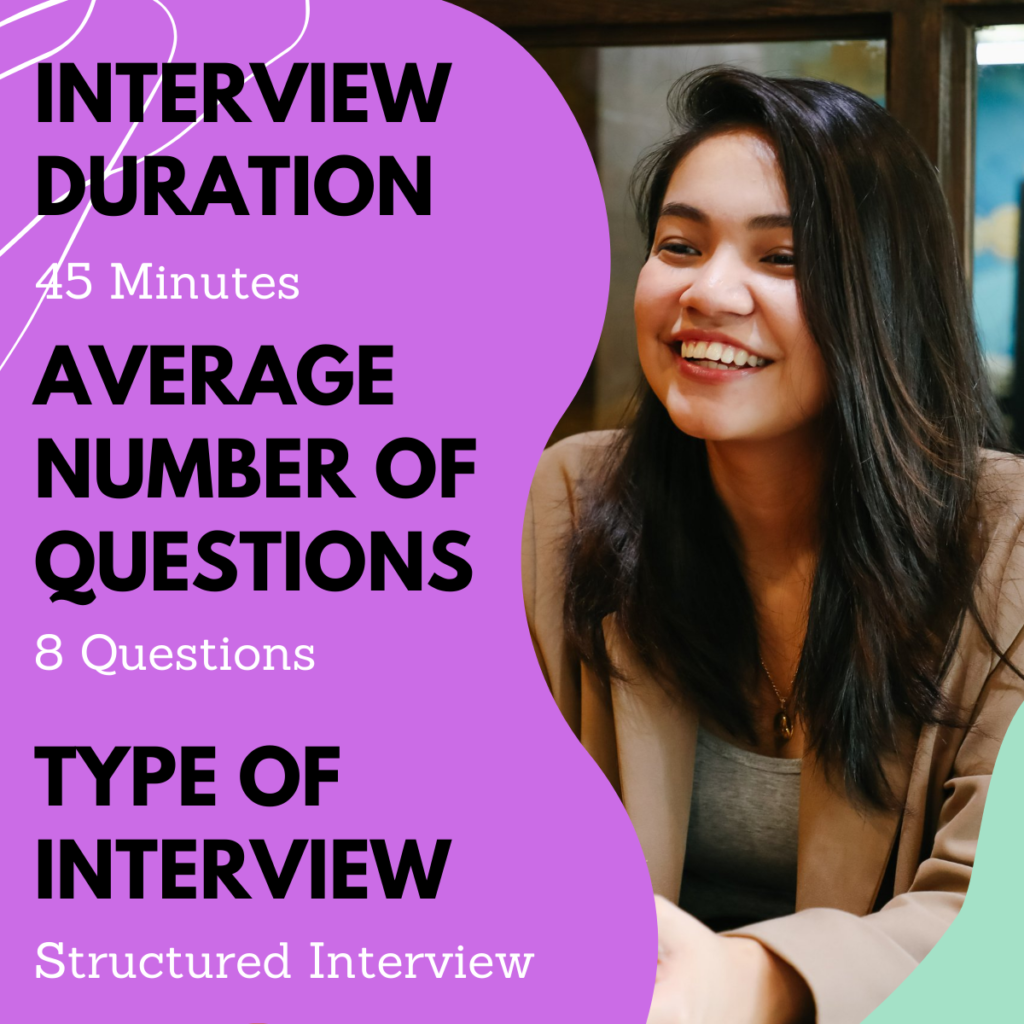The number of applications for teacher positions is on the increase with the rate of applications up by 91% compared with 2019.
There are a range of teaching roles, including:
- Primary school teacher
- High school teacher
- Teaching in further education
- Teaching in higher education
- Special schools for children with disabilities and special needs
- Pupil referral units for pupils who have been excluded from mainstream school
- Education in prison’s
- Supply teacher
- Teaching assistant
In the main, most schools recruit applicant with a QTS – qualified teacher status
Source: train to be a teacher
How competitive is a teacher job interview?

The medium rating of competitiveness was given due to the scope of schools recruiting teachers, as we as the long interview process.
As an example, applying for a teaching job in a rural area compared to a large city center increases or decreases the number of applications.
Also, the teaching subject makes a big difference to the number of applicants, with schools often struggling to recruit STEM teachers.
And location, applying in the North or South of England drastically changes the number of advertised teaching positions.
Source: reddit
The type of school; primary, high-school, college or higher education also effects the number of applications with primary schools having a high number of applications.
In a recent Guardian post, they said: “Figures released by Ucas, the university admissions network, showed more than 21,000 graduates had applied to teacher training programmes since the start of the coronavirus lockdown, a rise of 65% on the last five years.”
Interview Specifics:

A teacher interview, as discussed above, is part of a larger recruitment process which can consist of:
- An interview with school pupils to see how well an applicant can communicate and build rapport with the pupils
- Assessment centre for psychometric test and/or literacy and numeracy assessment
- Group exercise with other job applicants
- The marking of pupils work
- Delivery of an assembly, presentation and/or class
The teaching job interview is often a whole day recruitment event ending, with a structured job interview where candidates are asked job interview questions relating to the day-to-day tasks of a teacher.
Can you demonstrate the relevant knowledge and experience to pass a teacher job interview?
- Prepare, plan and deliver engaging lessons to pupils of different ages and abilities
- Mark pupil work and maintain records of pupils’ progress
- Embed a range of learning resources into lessons to increase pupil engagement
- Prepare pupils for examinations
- Manage pupil classroom behaviour
- Meet with parents and carers to discuss pupils’ progress
- Collaborate with learning mentors, careers advisers and educational psychologists and social workers
Check the average pay for a teacher job role.
Below is a list of commonly asked job interview questions for a teacher role.
Each summary comes with an explanation of the interview question and an example interview answer.
It is important to tweak each interview answer template, making it relevant to the interviewee’s own skills, qualities, experience, and knowledge.
An interviewer’s perception of a job applicant, their interview identity, is made up of the interviewee’s perceived level of knowledge/experience vs their level of confidence during the recruitment process.
The first stage, when preparing for a job interview, is to recognize your own ‘interview identity’.
Job Interview Questions and Answers for a Teacher
Prior to the job interview, the panel of interviewers (often 3 staff members, including a direct line manager) will make small talk to help relax the interviewee.
The hiring manager will start the interview by explaining the process of the structured job interview.
Including, the number of questions that will be asked, who on the interview panel will ask which questions, and how the applicant can ask for a question to be repeated.
They will go to explain the post-interview details; when each candidate will be told if they have been successful or not.
The job applicant, who prior to the recruitment day has made ample preparation, is expected to answer the questions by showcasing how they meet the job criteria.
There are a number of job interview questions for teachers. In this article, you will be given an explanation of how to answer the most commonly asked teacher questions.
Tell me about your teaching experience?
The ‘experience’ interview question is asked at 9 out of every 10 teacher job interviews.
For trainee teacher roles the question may be phrased as: “why do you want to be a teacher?” and some schools ask: “why did you apply for a teaching role at this school?”
To start the job interview on the right footing, the answer to the opening question must create a strong job interview identity.
A positive interview identity comes from highlighting a high level of teaching skills and experience through confidently delivered interview answers.
Here the employer is interested to hear:
- Number of years in the teaching sector
- Any specific roles/leads IE led on GATSBY benchmarks, head of yr10, career advisor
- All teaching qualifications and relevant CPD
- Pupil groups worked with (SEND, primary/high, yr 7,8,9 etc, young carers, FE/HE)
- Teaching skills and qualities
- Any standout achievements
In short, the openness of the first job interview question gives the applicant to state any selling points they deem as important.
The three rules of a successful job interview explain the importance of:
- Understanding the job criteria – the teaching duties and culture of the school
- Self-promoting any key achievements, teaching style and personal skills
- Confidently communicating competencies
“I am a passionate teacher with over X number of years teaching (add various age ranges/pupil cohorts)…
…In my last role I was (add selling point IE head of year 11, SEND coordinator, etc where I was responsible for (list 3-5 duties)…
…my X number of years experience as a teacher I have consistently been able to (add unique selling point) which was achieved by my ability to (add actions), an example of this was (give short example)…”
…My qualifications include (list qualifications)”
What is your knowledge of school data systems?
The following ITC skills are commonly required by teachers:
- SIMs or other school databases
- Whiteboard technology and teaching apps
- Microsoft Office
- Spreadsheets
- Email communication
- Data visualization
The ITC question is asked for two reasons, to confirm the interviewee has a basic understanding of ITC systems, including emails, excel, word documents. And, more importantly, any teacher-related ITC systems.
Schools are becoming more reliant on teaching technology, requiring teachers to be skilled in a variety of ITC.
To answer the technology question, start generic and become more specific, highlighting awareness of the applicant’s level of industry ITC systems and products.
“I am very skilled in a range of ITC skills, including the basics, excel, word, publisher. In fact, my level of (IT system) is above average – I am able to (explain school-related technology such as a teaching app)…
…Because I have worked in the sector for X number of years, I am fully conversed with (school database system) where I (add actions…
….I have experience of (add ITC system) that I use for (relate this to the classroom)”
Give an example of dealing with a disruptive pupil?
Having a range of techniques for dealing with a variety of difficult situations is a must for a teacher – as every day is different.
The ‘disruptive’ pupil question is commonly asked in teaching job interviews. The hiring manager is looking for the applicant to highlight their classroom management techniques.
In an article on handling brazen behavior, Michael Linsin, talks about the need to:
- Be calm
- Be Patient
- Be stealthy
- Be thorough
When answering the interview question, it is important to set the context allowing the employer to understand and visualise the past situation.
The key to receiving a high-scoring interview answer is to state the steps taken and the outcome from the stated actions.
Start the answer by listing the types of disruptions you have handled throughout your career:
“As an experienced teacher I have dealt with various descriptions from pupils shouting out in class to other pupils refusing to complete a task. From (add disruption to add second disruption)…
Explain why context is important:
“…It is important not to just jump in and discipline a pupil as this could easily escalate the situation. For example, a pupil may be angry because of a recent home incident which requires a different approach from when a pupil is disruptive on a regular basis..”
Next, give a real-life example:
“One example that comes to mind is when I was working as a teacher at (school name). I was teaching (subject) and set (task) when a pupil (disruptive behavior) which resulted in (escalation). Initially I (first action to control disruption), but this didn’t have enough effect. Instead, I (second action) which resulted in (positive outcome)…”
End, with a summary:
“…To summarise, I have much experience supporting disruptive pupils and with classroom management. When there is a disruption I will first think about the pupil and the potential reason for the negative behavior. I then use various techniques such as (A, B, and C) which has a (positive effect)”
Tell me about a time when a child or young person behaved in a way that caused you concern. How did you deal with that?
In an article on Headteachers-update they explain the principles of the NICE approach:
- Take a child-centred approach to all work with children and involve them in decision-making to the fullest extent possible according to age.
- Use a range of methods for communicating with children, e.g. drawing, books, activities where appropriate.
- Explain confidentiality and when you might need to share specific information and with whom.
- Always do what you say you are going to do and if circumstances change and this is no longer possible, explain why as soon as you can.
Safeguarding questions come in all teacher job interviews, often frame as above: “Tell me about a time when a child or young person behaved in a way that caused you concern.?”
The answer to the question can be split into two sections. The first is a general overview of your knowledge of safeguarding and second, an example of reacting to a pupil’s behavior.
“As a teacher safeguarding is paramount. A common sign of concern is a change in a pupil’s behavior. A pupil who in the main is calm and then randomly turns angry requires investigation. If for example, I discipline the pupil I might miss the reason for the change of behavior…
…I always keep an eye for indicators of abuse, which include:
- Indiscriminate contact or affection-seeking.
- Being over-friendly to strangers.
- Excessive clinginess and persistently seeking attention.
- Habitual body rocking.
- Being withdrawn and reluctant to communicate.
…An example of this is when I was teaching at (institute) One pupil that I knew well came to school (with a sign of abuse or neglect). Instead of (potentially escalating action) I decide to (action). I also (positive action taken which could include referrals, parent meetings, additional support). This resulted in (short term outcome and long term outcome).”
Give an example of getting all pupils involved in a lesson?
Pupil participation, not only creates a more enjoyable lesson for the pupils and teacher but also helps individuals pupils understand the lesson.
There are numerous ways to engage pupils from the ‘jigsaw’ technique – allow a student to learn a specific topic before teaching other students, to allowing the pupils themselves to choose a learning style, as discussed on a recent article on Kaplanco.
When answering the ‘involvement’ interview question, is is important, before giving an example, to highlight a working knowledge of engagement techniques.
“Research shows the importance of getting pupils engaged in lessons, from pupils measuring their own distance travelled in the classroom to putting students in charge of the lesson….
…An example of this was when I was working at (school) I was teaching (lesson) to a group of (pupils) and the lesson wasn’t going well (give brief description). To improve the session I wanted to increase pupil engagement. To get the pupils involved I (add steps)…
…This first helped (add positive engagement outcome) but more importantly this achieved (positive outcome)…..
…When planning lessons I always look at different ways to get the pupils engaged in the classroom, as this increases (benefit).”

What are your core strengths in terms of teaching?
Each teacher can bring a new strength to the classroom.
Brightnetwork list the 10 teaching skills as:
- Communication
- Patience
- Creativity
- Enthusiasm
- Confidence
- Dedication
- Conflict Resolution
- Organisation
- Leadership
- Adaptability
Interview questions that ask about strengths skills or teaching styles give the job applicant a chance to create a powerful self-promoting answer.
Start the interview answer with ‘confident statement’: “I am a highly skilled teacher who always (unique selling point)…
…the reason I have X number of years of successfully (unique selling point) is my ability to do (action)…
…My core strengths include (A, B and C) which I use when (school related problem)…
Make the answer more specific: “…An example of this was when (faced a problem) I (took action) which resulted in (positive outcome).”
Give an example of being GDPR compliant?
GDPR is a fairly new regulation that has a large impact how schools hold and share pupil data.
If GDPR is unknow to a job applicant, the teacher must familiarize themselves with the GDPR regulations in preparation for the job interview.
Many schools will list their GDPR and data protection policy on the school website.
In the job interview, the interviewee can cover 3 points to help create a high-scoring answer:
- GDPR Training
- Daily actions taken not to breach GDPR
- Any additional knowledge
“In all my previous teaching roles I have had handle sensitive pupil data…
…I have undertaken a range of GDPR and data protection training, which include (name training courses)
As a teacher I follow GDPR regulations by ensuring that all personal data is kept in lockable cabinets including pupil data, medical forms and sensitive information. When using IT systems I always create unique passwords, and lock my computer when I’m away from my desk.
Because we work in education, we deal with (sector-related sensitive data) I am also aware of the need to (add actions relating to the sectors sensitive data)”

How would you prepare for an OFSTED inspection?
All schools are asking the ‘OFSTED’ question.
Understanding this allows the job applicant to research and prepare their job interview answer.
The interview answer can start by highlight prior research: “I saw that in your last OFSTED inspection you received a (grading)…”
Before, moving to explaining previous OFSTED inspection experience: “…I myself have had to prepare for X number of OFSTED inspections. while at X school I was reasonable for (OFSTED role/reasonability)…
End the interview answer by giving specifics: “..When preparing for an OFSTED inspection I (actions – these can include proactive actions before the OFTED visit notification and re-active actions once an inspection has been announced). These actions has previously resulted in (positive outcome)”
Do you have any questions for the interview panel?
Each hiring manager during all job interviews will ask each interviewee if they have any questions for the employer.
Knowing that the final ‘ask me’ question will be asked, a set of questions needs to be prepared.
- How does the school support vulnerable pupils?
- What is the schools strategy for maintaining a good OFSTED outcome?
- What have been the progression and NEET rates for the past 3 years
- What makes you want to work at this school?
- How would you describe the schools culture?
- What CPD is on offer for new teachers?
This site uses the ‘LMI for All’ online data portal to access official government ‘big data’ sources. This powers the labour market data provided on this site.






